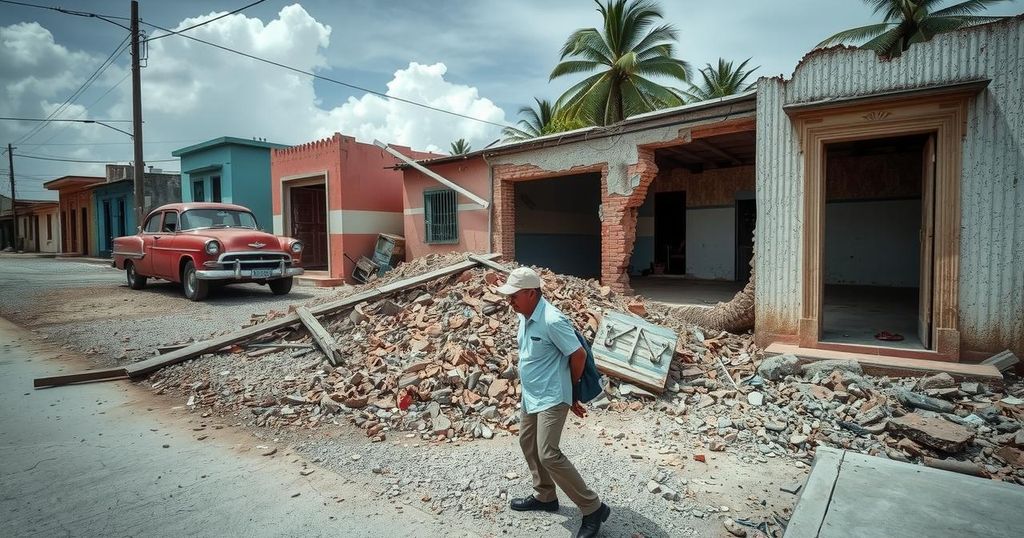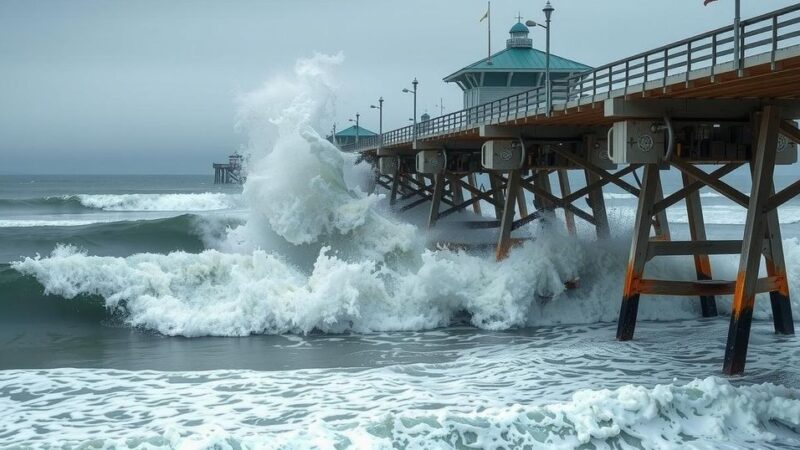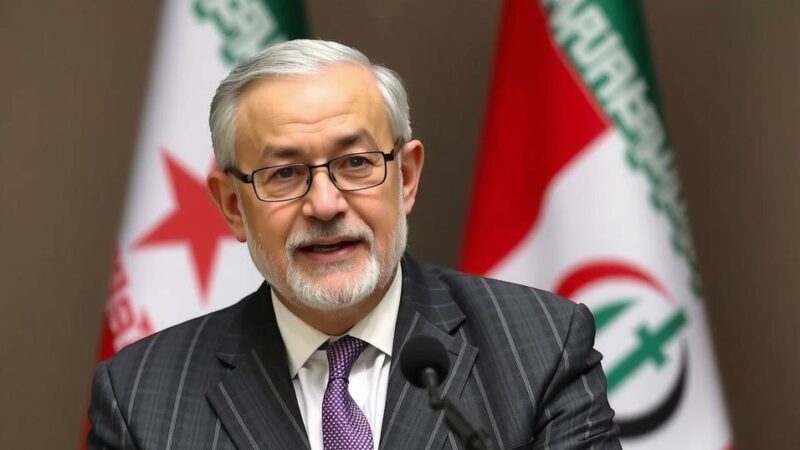A 6.1 magnitude earthquake struck eastern Cuba on December 23, 2024, causing significant damage particularly in Santiago de Cuba and Granma. Authorities are assessing the impacts, with reports of damaged homes and infrastructure, while implementing emergency transportation and safety measures. Fortunately, no deaths or injuries have been reported, and preparations for future events are underway.
On December 23, 2024, a substantial earthquake measuring 6.1 on the Richter scale struck southeastern Cuba, affecting areas primarily around Santiago de Cuba and Granma. Local authorities swiftly commenced evaluations of the damage, indicating significant destruction to various structures including at least seven homes and three state entities. Key leaders, including Beatriz Johnson Urrutia, the first secretary of the Communist Party in Santiago, and Governor Manuel Falcón Hernández, conducted tours of the severely impacted locations to assess the situation firsthand.
Initial reports highlighted substantial road damage, particularly along the Granma highway near Babujal, where landslides had obstructed access with boulders up to two meters in size. To counteract transportation difficulties, the local government has established an alternative system using buses and trucks to facilitate travel for residents affected by the destruction. “We have been organizing this transfer since the early hours of the morning, and so far it has gone quite well,” stated Yurdis Batista Espinosa, the president of the Municipal Assembly of People’s Power. He reassured that essential services such as healthcare and education remained unaffected.
In Granma province, residential and state buildings were similarly impacted, with many institutions showing cracks in their walls. During a videoconference, the first secretary of the Provincial Committee of the Party, Yudelkis Ortiz Barceló, confirmed that no fatalities or injuries were reported as a result of the quake. He urged families to prepare emergency kits, emphasizing the importance of having necessary items ready. Meanwhile, schools in municipalities such as Pilón have taken initiative to educate children on earthquake safety protocols due to the increasing seismic activity in the region, following a previous tremor weeks prior.
The earthquake, which occurred shortly after 1:00 a.m. local time, was centered 35 kilometers southwest of Chivirico. Since the quake, there have been 241 recorded aftershocks, with three being perceptible to residents. Authorities remain vigilant, continuously monitoring the situation and ensuring the safety of the community.
The recent earthquake in eastern Cuba significantly impacted the regions of Santiago de Cuba and Granma. Earthquakes in Cuba have occurred historically but this incident has prompted comprehensive assessments and rapid governmental responses. Officials are focusing on restoring infrastructure and ensuring the safety and preparedness of local inhabitants. The phenomenon of seismic activity in the region has increased attention to disaster preparedness, necessitating community education and emergency responses.
In summary, the earthquake in southeastern Cuba has resulted in considerable damages, prompting local authorities to implement emergency response strategies and maintain essential services. While damage assessments are ongoing, residents in affected areas are being provided with alternative transportation and are encouraged to prepare for any future seismic events. The response from leaders underscores the commitment to public safety and infrastructure recovery in the wake of the disaster.
Original Source: en.cibercuba.com







